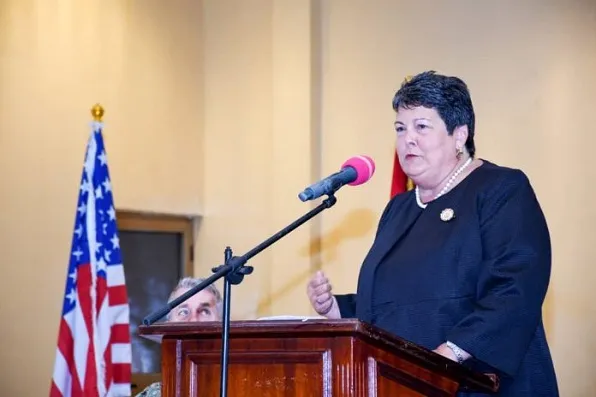U.S. Visa Restrictions On Democracy Underminers Could Heighten Ghana’s Risk Profile Ahead of Elections
He noted that the U.S. stands by Ghanaians’ aspirations for a fair and peaceful election, reinforcing its support for the democratic process in Ghana.
- Advertisement -
The U.S. has announced visa restrictions on individuals undermining democracy in Ghana, which could impact the country’s risk profile.
This move might increase concerns among international investors about Ghana’s political stability, potentially raising business costs and affecting financial terms for those investing in Ghana.
- Advertisement -
While the policy aims to support “the aspirations of all Ghanaians for a peaceful, transparent, and credible electoral process,” it may also carry weighty implications for Ghana’s business and investment landscape as it may lead to international investors reassessing the political stability and risk associated with doing business in Ghana.
- Advertisement -
According to the U.S. Secretary of State, Antony J. Blinken, this visa restriction policy specifically targets individuals believed to be complicit in undermining Ghana’s democracy, including through election manipulation, violence, and other coercive tactics.
Blinken emphasized that these restrictions are not directed at the Ghanaian public or government but at individuals who may seek to influence the electoral process through unethical means. He noted that the U.S. stands by Ghanaians’ aspirations for a fair and peaceful election, reinforcing its support for the democratic process in Ghana.
- Advertisement -
However, the impact of this announcement on Ghana’s international business and investment landscape is substantial and cannot be ignored. High-profile visa restrictions of this nature send a powerful signal, potentially casting Ghana as a higher-risk environment in the eyes of global investors and financial institutions.
When international stakeholders perceive elevated political risk, it can directly impact the cost of business operations, with higher insurance premiums, less favorable financing terms, and increased scrutiny in financial transactions involving Ghana. Such a shift in perception could affect everything from credit ratings to the ease of attracting new investments across sectors, as investors weigh the potential instability surrounding the elections.
Moreover, this decisive step by the U.S. may also reflect a strategic intent to protect American investments and economic interests within Ghana. By implementing a preemptive policy against potential election-related disruptions, the U.S. seeks to create conditions that discourage any escalation into conflict or instability – scenarios that could jeopardize its established business partnerships and economic projects.
This dual approach reflects both a commitment to democratic integrity and a clear focus on securing a stable environment for ongoing American investments.
This shows clearly a critical intersection of democracy and economic interests, where the stakes extend beyond politics into tangible impacts on Ghana’s business and economic outlook.
Source:thehighstreetjournal.com
- Advertisement -


